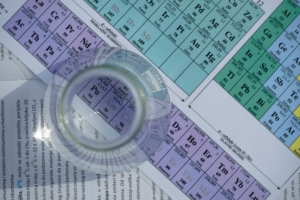Delay in MAA for Asit Biotech’s BTT009
Belgian Asit Biotech S.A. (formerly Biotech Tools) has announced that its grass pollen allergic rhinitis immunotherapy gp-ASIT+ did reach the primary efficacy endpoint in a Phase III trial but needs confirmation through an additional Phase III study. Market access is receding into the distance.
According to scientific advice given by German regulator, PEI, results of a Phase III study with the standardised grass pollen protein hydrolysate (Lolium perenne peptides, LPP) missed the predefined 20% difference of combined clinical symptom and medication score (CSMS) between placebo and the treatment group and needs confirmation through an additional Phase III study to support a Marketing Authorization Application (MAA). The PEI agreed that Clinical Provocation Test (CPT) reactivity at baseline may be used to characterise and identify the most appropriate patients in a future Phase III study.
The company announced that data including primary and secondary endpoints as well as post-hoc analyses point to symptom improvement in patients after 3-week course treatment with gp-ASIT+ (BTT009) . Furthermore, there was a clear effect of gp-ASIT+ on the immune system which would support CSMS improvement.
Results of the Phase III study were presented by Ralph Mösges (University of Cologne), member of the Scientific Committee of ASIT biotech and principal investigator at EAACI 2017. In the Phase III study, 554 patients with grass pollen-induced rhinoconjunctivitis with or without controlled asthma (ratio 1:2) were randomised to receive once-weekly subcutaneous injections of placebo or increasing doses of LPP, reaching the cumulative dose of 170 µg in 3 weeks. the primary endpoint was the average combined score (CSMS) of the daily total rhinoconjunctivitis symptom score (RTSS) and the daily medication score (RMS) during the peak of the subsequent grass pollen season. The reduction in reactivity to the conjunctival provocation test (CPT) was assessed as the secondary efficacy endpoint.
After treatment with LPP, the CSMS improved significantly by 15.5% (P=0.041) and RTSS by 18.5% (P=0.013) during the pollen peak compared with placebo (Mann-Whitney test, intention-to-treat population: 171 patients in placebo and 339 patients in LPP groups). In addition, a 46% reduction in lung symptoms was observed in asthmatic patients treated with LPP compared to placebo. Reactivity to CPT decreased significantly in 60.0% of LPP-treated patients compared with 35.6% in the placebo group (P<0.0001, Chi-square test). 89.4% of the patients reached the cumulative dose of 170 µg as defined in the protocol. 5.4% of patients under LPP discontinued treatment due to generally mild local or systemic reactions. No relationship was observed between the frequency/severity of adverse events and the injected dose.
In a patient subgroup with the highest CPT reactivity at baseline (reactivity score 3 and 4) representing more than half of all the Phase III patients, the symptoms improvement compared to placebo reached 20% during the peak pollen period (p=0.05) and 24% over the entire season (p=0.05); CPT reactivity observed at baseline was predictive of later clinical response. According to Mösges, these results support the efficacy and safety data of gp-ASIT+ shown in previous studies.
Thierry Legon, CEO of ASIT Biotech said: We are already performing the feasibility study of the next Phase III and we hope that we will be able to treat the patients before the next pollen season.




 SANOFI
SANOFI